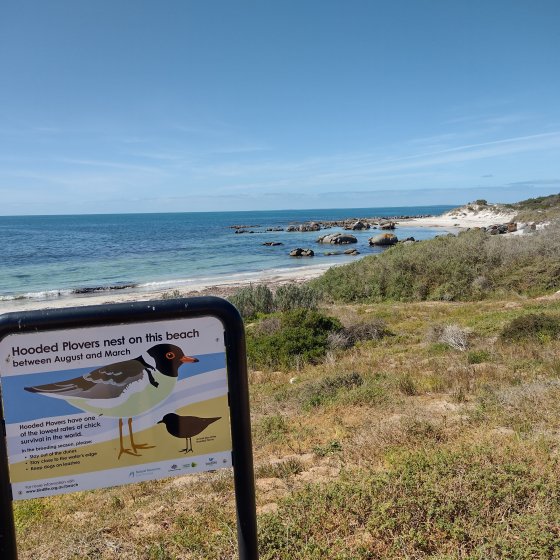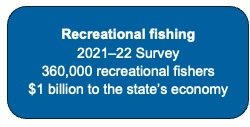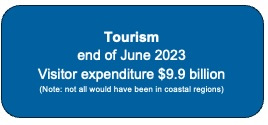- Home
- Environmental Themes
- Sea
- Importance of Our Sea
Importance of Our Sea
Valuing Marine and Coastal Ecosystems
More than 5,000 km of South Australia’s coastline (mainland and islands) and more than 60,000 km2 of adjacent marine waters make up the South Australian coastal zone. South Australian marine waters fall within three nautical miles of the coastline and include both Spencer Gulf and Gulf St Vincent. Around 90% of South Australians live within 50 km of the coast, with 75% being within the Greater Adelaide region.
Marine ecosystems are of immense importance for both environmental and human wellbeing and provide a number of services, including ecosystem services:
- Biodiversity: Marine ecosystems support a vast array of species, and are home to numerous marine organisms, including fish, algae, seagrass, shellfish, corals, marine mammals and countless other forms of life. They also provide breeding habitats and nursery grounds, and support food webs. Of southern Australia’s marine life, 85% is not found anywhere else in the world. The preservation of marine ecosystems is essential for `maintaining biodiversity and ensuring the survival of these species.
- Oxygen production and carbon sequestration: Marine plants, particularly microscopic algae called phytoplankton, contribute significantly to oxygen production through photosynthesis. They are responsible for generating over half of the world's oxygen. Additionally, marine ecosystems, such as mangroves, seagrass beds and salt marshes play a vital role in carbon sequestration by capturing and storing carbon dioxide from the atmosphere, which helps to mitigate climate change.
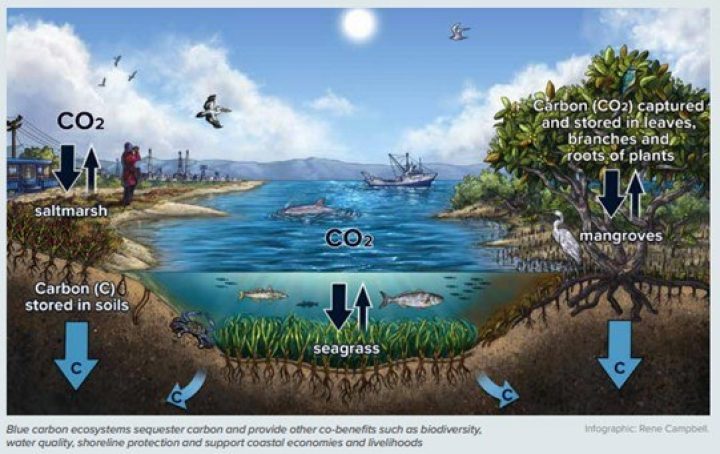
- Climate regulation: The oceans have a significant influence on Earth's climate system. They act as heat sinks, absorbing and redistributing solar energy and regulating global temperatures. Additionally, ocean currents, such as the Leeuwin current that flows along the coastline of South Australia, play a crucial role in transporting heat and redistributing it around the planet, influencing regional climates and weather patterns.
- Food: Marine ecosystems provide a substantial source of food and livelihoods for millions of people worldwide. Fisheries and aquaculture rely on healthy marine ecosystems to sustainably harvest fish, shellfish and other seafood. Many coastal and regional communities depend on fishing and related activities for their economic wellbeing and cultural traditions. Spencer Gulf and Gulf St Vincent are some of the most commercially productive areas in South Australia, thereby supporting our aquaculture industry and commercial and recreational fishing sectors. South Australia has developed a Seafood Growth Strategy to identify opportunities to further develop a sustainable seafood sector.
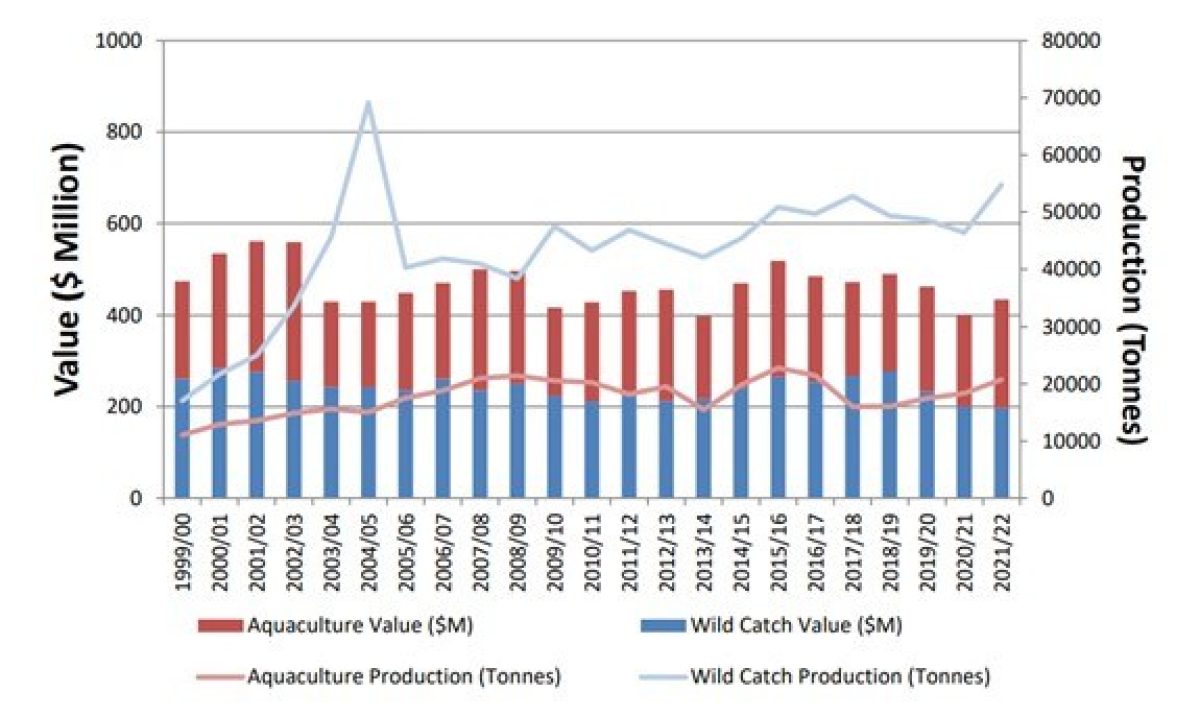
- Coastal protection: Healthy marine ecosystems, such as algal reefs, seagrass beds and mangrove forests serve as natural buffers against coastal erosion, storm surges and extreme weather events. They act as physical barriers, absorbing wave energy and protecting coastlines from erosion and damage. Loss or degradation of these ecosystems can increase vulnerability to coastal hazards and threaten human dwellings and infrastructure.
- Recreation and tourism: Marine ecosystems and coastal environments attract millions of tourists each year, offering opportunities for recreational activities such as swimming, diving and snorkelling, boating, recreational fishing, camping, 4WDing and wildlife observation. Whale-watching, white sharks, sea lions and the Giant Cuttlefish support tourism in regional areas where these animals are viewed. Coastal tourism provides economic benefits to local regional communities, supporting jobs and businesses. However, we need to ensure that potential impacts to the environment from recreation and tourism are appropriately managed.
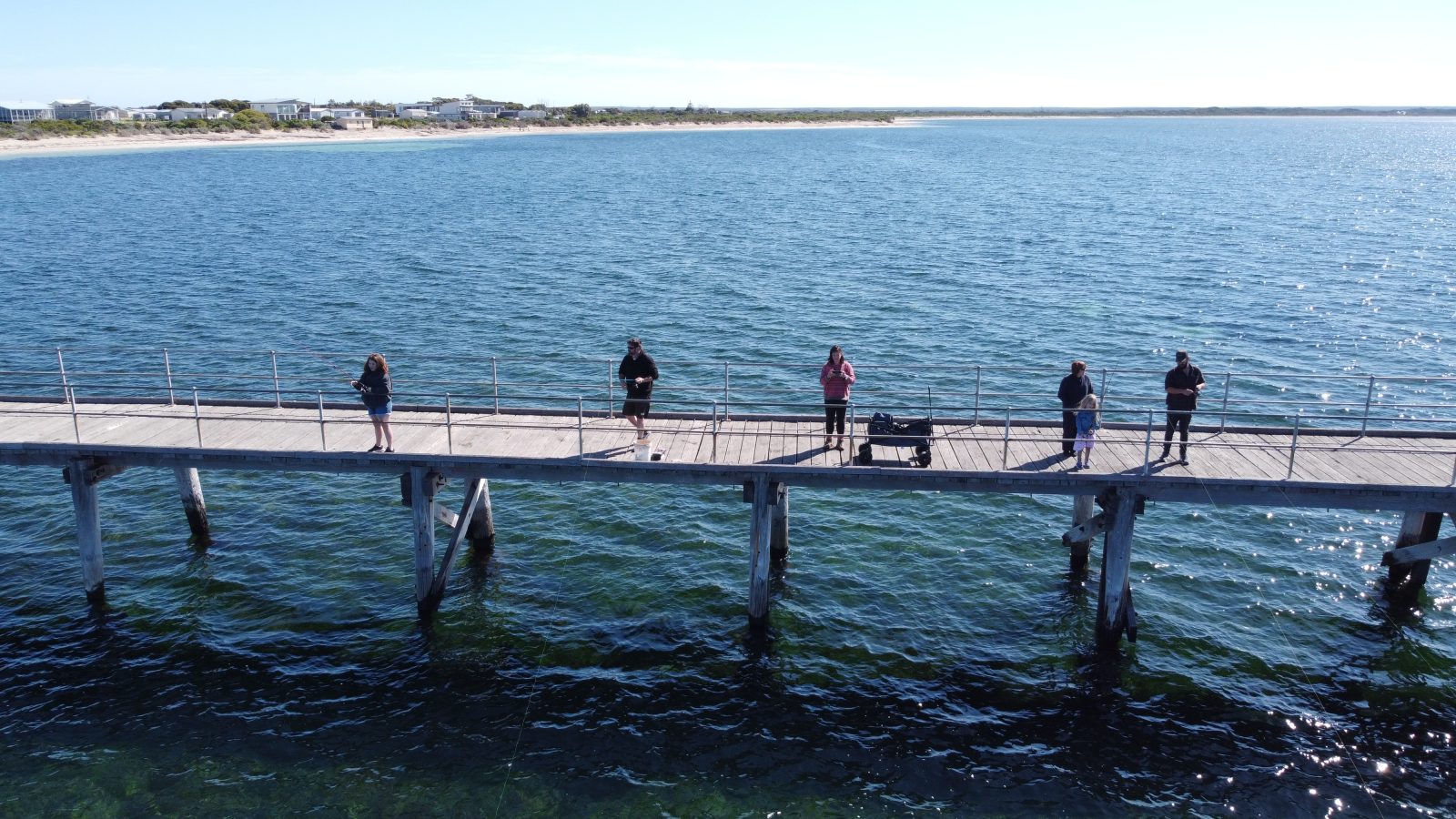
- Amenity and wellbeing: Proximity of houses to the coast has a positive impact on property values, indicating that people enjoy living by the sea. Coastal living has been associated with numerous health benefits with residents having access to fresh sea air, coastal walks and natural beauty. This was also highlighted during the YourSAy consultation with many participants responding that they valued their coastal environment, which supported their health and wellbeing. Sea Country is also important for the culture, health and wellbeing of Aboriginal people.
- Sea transport: This plays an important role in connecting South Australia to the global economy, supporting trade, tourism and economic growth in the region. Major ports are located in Port Adelaide, Outer Harbor, Thevenard, Point Lowly and Whyalla, Wallaroo, Lucky Bay and Port Pirie. Shipping is used to transport products to and from other countries and South Australia is also attracting both domestic and international cruise ships. However, sea transport and supporting marine infrastructure also increase the risk of the introduction of invasive species, which can impact coastal and marine biodiversity.
- Scientific research and discovery: Marine ecosystems are a treasure trove for gaining scientific knowledge and a source of potential discoveries. They offer unique habitats and ecosystems yet to be fully explored. Studying marine ecosystems provides insights into biodiversity, climate change, marine chemistry and the interconnections within Earth's intricate systems. It furthers our knowledge of the natural world and assists us in being able to manage it sustainably.
Sea Country and Aboriginal People
Aboriginal people have been protecting their Sea Country for many thousands of years. Sea Country is integral to the culture and heritage of Aboriginal peoples who have a strong spiritual connection to the coast and its natural resources. Sea Country supports spiritual ceremonies, stories, rituals and practices.
Historically, Aboriginal peoples have relied on the sea for sustenance, using marine resources such as fish, shellfish and other marine life as a primary source of food. Traditional fishing practices, passed down through generations, are still valued and practiced by many Aboriginal communities. A project on maintaining cultural practices and building knowledge and capacity to support sustainable fishing of the Gynburra on Narungga Sea Country has been supported by the Fisheries Research and Development Corporation.
Community perspectives
Feedback obtained via the SOER YourSAy page indicated that respondents valued the coastal environment for the beach and the wildlife it supports and also for recreation. Key issues raised included:
- coastal erosion from development and sand mining
- impacts from climate change including sea level rise
- impacts from recreational use such as rubbish and habitat damage resulting from 4WDing and camping.
